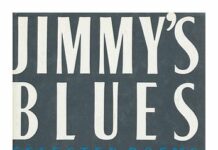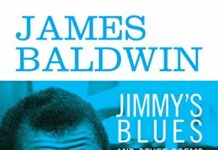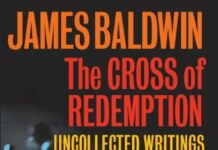
Ebook Info
- Published:
- Number of pages:
- Format: PDF
- File Size: 8.36 MB
- Authors: James Baldwin
Description
James Baldwin was a uniquely prophetic voice in American letters. His brilliant and provocative essays made him the literary voice of the Civil Rights Era, and they continue to speak with powerful urgency to us today, whether in the swirling debate over the Black Lives Matter movement or in the words of Raoul Peck’s documentary “I Am Not Your Negro.” Edited by Nobel laureate Toni Morrison, the Library of America’s Collected Essays is the most comprehensive gathering of Baldwin’s nonfiction ever published.With burning passion and jabbing, epigrammatic wit, Baldwin fearlessly articulated issues of race and democracy and American identity in such famous essays as “The Harlem Ghetto,” “Everybody’s Protest Novel,” “Many Thousands Gone,” and “Stranger in the Village.” Here are the complete texts of his early landmark collections, Notes of a Native Son (1955) and Nobody Knows My Name (1961), which established him as an essential intellectual voice of his time, fusing in unique fashion the personal, the literary, and the political. “One writes,” he stated, “out of one thing only—one’s own experience. Everything depends on how relentlessly one forces from this experience the last drop, sweet or bitter, it can possibly give.” With singular eloquence and unblinking sharpness of observation he lived up to his credo: “I want to be an honest man and a good writer.”The classic The Fire Next Time (1963), perhaps the most influential of his writings, is his most penetrating analysis of America’s racial divide and an impassioned call to “end the racial nightmare…and change the history of the world.” The later volumes No Name in the Street (1972) and The Devil Finds Work (1976) chart his continuing response to the social and political turbulence of his era and include his remarkable works of film criticism. A further 36 essays—nine of them previously uncollected—include some of Baldwin’s earliest published writings, as well as revealing later insights into the language of Shakespeare, the poetry of Langston Hughes, and the music of Earl Hines.LIBRARY OF AMERICA is an independent nonprofit cultural organization founded in 1979 to preserve our nation’s literary heritage by publishing, and keeping permanently in print, America’s best and most significant writing. The Library of America series includes more than 300 volumes to date, authoritative editions that average 1,000 pages in length, feature cloth covers, sewn bindings, and ribbon markers, and are printed on premium acid-free paper that will last for centuries.
User’s Reviews
Reviews from Amazon users which were colected at the time this book was published on the website:
⭐The book contains a wide range of Baldwin’s works. Some of the works are good; others are excellent. Baldwin’s writing is fine, and the pieces are moderately readable. Almost everything (with the exception of his short reviews) is interesting and/or thought provoking.
⭐On the advice of a friend I bought this collection and started with The Fire Next Time. After reading the opening “My Dungeon Shook” I was stunned into absolute stillness. I knew what I had just read was truly the work of a genius, and I realized the concept of America as I understood it was missing a large piece of its reality, and Baldwin was the man who caused the scales to fall from my eyes.There really isn’t a parallel I can draw that would describe the sensation of realizing that, having grown up in a nearly all-white town, and having almost exclusively white friends, I was living my life blithely unaware of the reality of millions of my fellow Americans. It’s been more of Baldwin’s writing that made me aware that the racism that was bred into me, by basically neglecting other races’ realities, was kept hidden from my conscious mind by design; as well as the fact that it’s harmful to all races (my own included) when we allow racism to run unchecked through our veins.To cut it down to a shoutable slogan, take his words: Black men don’t have mid-life crises. It is immediately understandable what that means; they were never promised that the world was theirs’ for the taking. They weren’t told they could be anything they wanted when they were young the way I was. And therefore when they’re in their mid-thirties they don’t have an existential crisis because they aren’t wealthy and famous. This is a white phenomenon. The same reason goes for why white men take the lead in suicides and deaths of despair. When a group of people are raised believing they deserve a larger piece of the pie than another group of people… it never ends well; for themselves, or for those who feel their wrath when they realize they’re just another working stiff.And these revelations were just the beginning of what I have learned from Baldwin. I’d also add the book The Radical King to a reading list if someone asked me about these topics. These should be required reading in my opinion.
⭐I’d heard about James Baldwin, and I read some of his fiction, but he is at his best as an essayist. Clear, concise, insightful, and just a great writer. If you want to read some really excellent writing, this is the guy and this is the book. The topics are once again timely even if 40-50 years have gone by. He nails it, and even on the other topics, his writing is spot on. You will learn not just about the topic, but about how well someone can write about it. Read and learn
⭐You think you understand something of what it is to be black in America. If you’re not black, reading–listening–to Baldwin’s essays will first, break your heart. It will also make you angry that our efforts to end racism fall so far short. Why can’t we fix this? Why can’t we end racism. “Race” is a completely artificial construct. We made it up. We tell millions of people–children, women, men–that they are less, they are inferior because of the amount of melanin in their skin compared to ours. We reinforce that message in every way, endlessly. We have sinned, and we continue to soft-pedal what we’ve done to our fellow Americans. White Americans will never be free until black Americans are recognized as equals.
⭐Baldwin was impressively insightful. He explained a great deal about racism that I (an old white man) had a good hunch about but did not fully understand — especially not the “why” and the “how”.The scary part is that Baldwin wrote this all down for us half a century ago, yet we did nothing to correct it. Hopefully, that is beginning to happen now.Highly recommended for all “us honkys”.Just be aware that Baldwin wrote in long and complex sentences, so it may take you a chapter or two before you are up to speed on his style. Very much worth the effort, though, and as a bonus you will learn better English just from reading him.
⭐I’d read Baldwin’s “The Fire Next Time” a few years ago in one of the Library of America’s volumes of reporting on the civil rights movement and was blown away by the sheer brilliance and power of his writing. “The Fire Next Time” is included in this collection, but there’s a whole lot more here, much of it every bit as powerful as “Fire.” There’s an intensity to Baldwin’s essays that forces you to confront many of the terrible truths that lie just below the surface of American life but that we must face up to if we are ever to realize the true vision embodied in America’s founding principles. In some respects, it may appear that we’ve made progress since Baldwin wrote these essays, but I’m sure that if he were still with us, he’d be the first to point out that much of that progress is in fact superficial and illusory, and that we’ve still got a very long way to go.
⭐James Baldwin is a literary genius with an exceptional vocabulary. I must admit, this was a hard read for me, for half the time I’d lose the message, but I challenged myself to stay on the journey. In this writing, I learned about about Mr. Baldwin and his experience as a Black man in America and in Paris. Though I have just begun to explore his work, I am fascinated by him and especially his command of words.
⭐I am a professional writer and I think James Baldwin is the finest 20th century writer — better than everyone. His work is timeless and is especially relevant to what black Americans experience and have since the moment they arrived in American. Racism is rampant and equality will be achieved only with systemic changes. Baldwin vividly describes the horror, not only writing with a punch but writing it beautifully. I’m grateful to the grad school professor who made some stories in this book required reading.
⭐James Baldwin is the closest there is to George Orwell in the second part of the XXth Century, and has a range that makes all aspirants to write amaze, and his fellow writers simply pale. He is a superb novelist – see the plot of If Beale St could talk, recently made into an Oscar winning movie. But it is in his essays where he shines more. His various autobiographical notes put you right in the America of the sixties. His comments on race discrimitation (and violence) are the best written pieces on the racism of the Century. And YouTube allows us to see his many dissertations and TV debates, where he was always pitch-perfect, never beaten.As a coda – see I’m not your Negro after reading his books and try not to ask yourself over and over again, as he does repeatedly: what’s the matter with human beings?
⭐The Library of America Hardback edition books are great value: They normally contain a number of stories by the author; sometimes essays; and sometimes autobiographies. They have quality binding, with acid free paper, and offer work by a number of very important writers. Along with the Everyman’s Library Classics Editions – they are my favourite book editions.
⭐This is a wonderful book. An essential part of the American canon.
⭐Amazing writing and more relevant than ever. Nice printed book, too.
⭐A1
Keywords
Free Download James Baldwin : Collected Essays : Notes of a Native Son / Nobody Knows My Name / The Fire Next Time / No Name in the Street / The Devil Finds Work / Other Essays (Library of America) in PDF format
James Baldwin : Collected Essays : Notes of a Native Son / Nobody Knows My Name / The Fire Next Time / No Name in the Street / The Devil Finds Work / Other Essays (Library of America) PDF Free Download
Download James Baldwin : Collected Essays : Notes of a Native Son / Nobody Knows My Name / The Fire Next Time / No Name in the Street / The Devil Finds Work / Other Essays (Library of America) PDF Free
James Baldwin : Collected Essays : Notes of a Native Son / Nobody Knows My Name / The Fire Next Time / No Name in the Street / The Devil Finds Work / Other Essays (Library of America) PDF Free Download
Download James Baldwin : Collected Essays : Notes of a Native Son / Nobody Knows My Name / The Fire Next Time / No Name in the Street / The Devil Finds Work / Other Essays (Library of America) PDF
Free Download Ebook James Baldwin : Collected Essays : Notes of a Native Son / Nobody Knows My Name / The Fire Next Time / No Name in the Street / The Devil Finds Work / Other Essays (Library of America)





